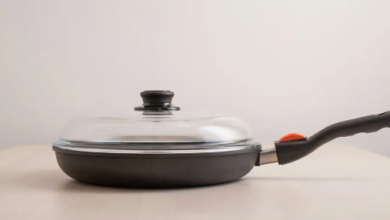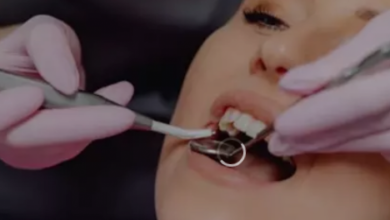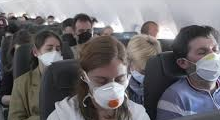Prolonged PPE Use: 6 Tips For Medical Frontliners
The strike of coronavirus 2019 (COVID-19) has forced medical frontliners to comply to wearing personal protective equipment (PPE) on top of their hospital uniforms or scrubs. Personal protective equipment pieces for healthcare workers include face coverings, gowns, gloves, and goggles.
Doctors, nurses, caregivers, midwives, nursing attendants, and other people working in clinical areas are medical frontliners. They must wear the appropriate type of PPE at all times, especially during this pandemic crisis.
While PPEs offer protection against harmful airborne microorganisms, body fluids, and other contaminants, they also pose negative effects to healthcare workers when worn for prolonged periods of time. Some of the issues medical frontliners are facing when wearing PPEs include discomfort and communication difficulties. Nurses and doctors also need to wear large nameplates or badges for identity purposes.
Below are some tips for medical frontliners when they’re subject to prolonged use of PPE.
1. Use Comfortable Scrubs
Many clinics and hospitals use scrub suits as everyday uniform. Using high-quality scrubs can help promote better PPE wear by reducing the warmth and skin irritation usually caused by cheap fabrics.
Here are some tips when choosing medical scrubs:
- Consider The Fabric: Good quality scrubs are made of premium fabrics such as polyester-cotton blends, polyester-viscose, or polyester-rayon. They’re breathable, lightweight, and moisture-wicking.
- Consider The Climate And Weather: For hot, dry weather, pick a lightweight scrub material, which is pretty flowy with spandex to improve flexibility, freedom of movement, and comfort. For humid climates, choose scrubs made of polyester-cotton blends to strike a good balance between moisture-wicking properties and breathability. A cotton-based fabric is suitable during winter or cold dry weather with minimal polyester to keep you warm and prevent static electricity.
- Choose A Trusted Brand: Healthcare workers can find trusted brands of excellent quality scrubs online so they can order and receive their new scrubs hassle-free, such as Keswi.
2. Choose A Comfortable Face Mask
Face masks come in different types with varying protection levels. If you work as a community nurse in a low-risk COVID-19 area, you can opt for a surgical facemask than a tight-fitting N95 mask. The level of comfort differs from one person to another. If you find N95 mask more comfortable for you, then go ahead and use it.
Here are the recommendations of the World Health of Organization (WHO) when it comes to wearing face masks by medical workers during the COVID-19 pandemic crisis:
- Cluster Or Community Transmission: Healthcare workers must wear face masks at all times even with physical distancing.
- Combine Proper Hand Hygiene: Medical frontliners should perform hand washing and other hand hygiene activities before and after wearing mask and any time they touch their face or adjust their mask.
- Using Respirator Mask: Wearing respirator masks is a standard operating procedure or SOP when medical frontliners work with suspect or confirmed COVID-19 patients.
3. Choose The Right Fit Of Eye Protection Or Face Shield
Dentists usually use goggles for eye protection during dental prophylactic treatments such as oral cleanings and tooth extraction. When choosing goggles, make sure that they’re not too tight or too loose. Choose the right fit for your facial frame to avoid discomfort with prolong use of eye protection or face shield.
The Centers for Disease Control and Prevention (CDC) recommends wearing eye protection and masks or respirators by health care workers in moderate to substantial COVID-19 community transmission. When wearing goggles or face shields, the CDC recommends using a hooded face shield. Wrap-around face shields should extend below the chin.
Medical frontliners should choose high-quality goggles or face shields. Users should ensure they fit properly and disinfect them following the manufacturer’s directions.
4. Take A Break
Medical workers are passionate in helping patients. Some of them prefer to use PPE for the entirety of their shift and skip breaks and lunch because of the hassle of wearing them back again. However, taking a break is crucial because physical problems arise with more than four hours of PPE use.
In a recent survey, the most common problems nurses experience when wearing PPE include sweating when wearing surgical or mask, perspiration when wearing gowns or overalls, dry hands from wearing gloves, and vision problems while wearing goggles or face shields.
If you’re a medical frontliner, you should take a break on scheduled time to safeguard your physical and mental health. More than anybody, you know the consequences of skipping meals and tolerating the physical discomfort of wearing PPE for prolonged periods.
5. Get Vaccinated
All healthcare workers should receive COVID-19 vaccination. In this way, they won’t worry about removing their PPEs during their break time. Unvaccinated care workers are at risk of contracting the COVID-19 virus. Hence, they choose to wear PPE all day.
If you’re a new medical worker and haven’t been vaccinated yet, schedule a vaccination appointment right away before starting work. You can get in touch with your employer to find out how you can get free vaccination.
6. Take Care Of Your Health
Prolonged PPE use can wreak havoc to your physical and mental health. That’s why medical frontliners like you should also take time to take care of your health. Here are some health tips for medical frontliners who use PPE for prolonged periods:
- Keep Yourself Hydrated: Excessive sweating can cause hydration issues, so you need to make sure you drink lots of fluids during your entire shift.
- Develop A Skin Care Routine:

Gloves, face masks, and other PPE items can irritate your skin. Seek a dermatologist’s advice as to the best skin care products for your skin type to avoid skin rashes and irritations caused by prolonged PPE use.
- Eat Nutritious Foods: Wearing PPE can exhaust your energy, so make sure you eat right. Don’t deprive yourself of healthy foods, like fruits, vegetables, dairy products, and carbohydrate sources. Just avoid eating spicy foods (they make the body feel hot), acidic foods, or foods that tend to upset the stomach (because they can cause discomfort when wearing PPE).
Conclusion
Medical frontliners need to wear PPEs to avoid spreading or contracting bacteria and viruses that cause infection, especially the life-threatening COVID-19. Prolonged PPE use can be uncomfortable for healthcare workers and stigmatizing for patients. That’s why it’s important to follow the tips shared in this article to help improve everybody’s overall PPE experience.






